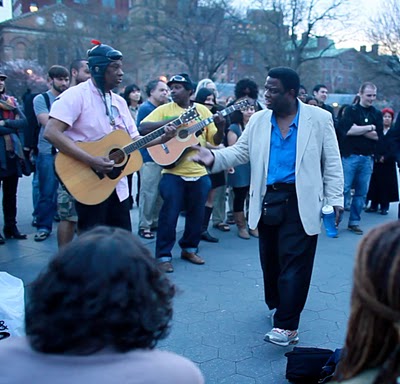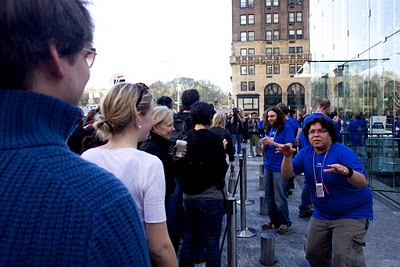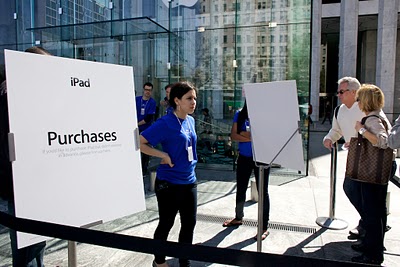Lynne McTaggart
 Tuesday, December 21, 2010 at 11:31PM
Tuesday, December 21, 2010 at 11:31PM Sitting through 18 minutes of Lynne McTaggart's inane drivel was only a minor annoyance. However, now that an unnamed TEDxBrussels organizer went out of his (or her) way to defend their decision to invite her, I think I'm genuinely pissed. This avowed non-scientist's post (the only one published on TEDxBrussels blog since the event) is wrong in every possible way, completely misunderstands the criticism it purports to answer, and is frankly insulting to those of us who voiced said criticism.
Firstly, if your honest goal is to "join and extend the conversation" in an adult way, you really, really shouldn't open by drawing a parallel between the audience reaction to Mrs. McTaggart's talk and the campaign against WikiLeaks. No-one suggested Lynne McTaggart be silenced. You're welcome to "defiantly reserve the right" to invite her, if mindless posturing happens to be your thing that's entirely fine with me, but no-one's attempting to deny you that right. I and others have said that inviting her was a mistake, but we all agree it's a mistake you're fully entitled to make. Anyway, exposing and denouncing quackery is not an assault on free speech. On the contrary, it is one of the main reasons we need free speech.
By the way, I resent your assumption that I merely "disagree" with Mrs. McTaggart. I'm calling her a fraud. Big difference. I disagree with Republicans who say lower taxes are needed to stimulate the economy. I think they're wrong, but I'll admit that their theory is not a fully disprovable one. On the other hand, Birthers, who maintain the lunacy that Obama wasn't born in the United States, are simply paranoid and delusional, and I won't dignify their position by saying I'm just disagreeing with them.
So what's my beef with Lynne McTaggart? You assert "The charge is that her brand of science is not valid[…]", but no, that's not the charge at all. There are no "brands" in science. There is science, and there is pseudo-science. Spotting the difference between the two is not always easy, especially if, like most people, you only have a vague and second-hand understanding of what science is. It's not just a collection of disciplines, and it certainly has nothing to do with the person practicing it or the institution he belongs to. (After all, the most acclaimed scientist of all time changed our understanding of the universe while working as an obscure patent clerk.)
Science is a set of practices and techniques that enables mere humans to infer objective knowledge about the universe. To me, it is mind-boggling that this is even possible. Our brain evolved to help us evade lions on the plains of East Africa. Whenever it's used to ponder the fabric of the universe it unsurprisingly betrays severe shortcomings. All humans are prone to emotional outbursts, confirmation bias, and a flurry of logical fallacies. The scientific method is the best way we've found yet to avoid these trappings.
Contrary to popular belief, science isn't all that complicated to learn. Humanity's body of scientific knowledge is, of course, huge and always expanding, but the basic method is simple enough. You certainly don't need to go to college to learn it, although that is one popular option. What you definitely need, however, is to want to learn and practice it. You need the willingness to constantly put your beliefs and worldview to the test, and risk seeing the evidence expose them as fraudulent. You need the discipline to, whenever you get a new idea about anything, immediately assume the role of Devil's Advocate, and attack the idea from all possible sides to see if it survives the pummeling. You need, in the words of Richard Feynman, to always be ready to "bend over backwards to show how you’re maybe wrong".
Lynne McTaggart is unwilling to even glance back over her shoulder. She throws around anecdotes about jars of water and peas sitting in laboratories and rambles about how they "noticed an effect". What effect ? How about all the experiments where they didn't notice an effect ? What controls were used to make sure the "effect" couldn't be explained without positing a parapsychological "field" ? By the way, I haven't read Mrs. McTaggart's book, and I don't intend to. (I'm busy.) Nor do I need to to know she's not interested in real knowledge. She proved that at TEDx, by closing her talk with a faith-healing session for a woman with a bacterial infection. This was not an experiment, although that's what she called it. Real experiments are designed to provide evidence that put theories to the test. Whatever happens to that women, it won't be evidence of anything. Bacterial infections have widely diverging effects and remission patterns. They occur all the time and usually go away within a few days. Sometimes they linger and no-one really knows why, and sometimes they go away unexpectedly fast, simply because that's what sometimes happen. (Judging by the throbbing in my throat, I've got a bacterial infection right now. I'm not overly worried.)
I bet Lynne McTaggart performs that same "experiment" every time she gives a talk. Actually, I know she does, she even bragged about it. But she could do it thousands of times and compile testimonies from all her subjects and they could all be ecstatic about how well the chanting worked and it still wouldn't be evidence of anything. The scientific method is simple enough, but the human body is complicated, thus evaluating the efficacy of a treatment is notoriously hard. Lynne's "experiment" doesn't even attempt to control for cognitive bias nor the placebo effect. These effects are so well-known that she can't possibly be unaware of them. Since she obviously decides to ignore them, I conclude she's not really interested in finding anything out. It's just show-biz. And there's nothing wrong with show-biz, until it starts masquerading as scientific inquiry. (By the way, I again find exception in your claim that "[scientists] present at TEDx Brussels, […] all participated in the experiment, all closed their eyes and linked hands with their neighbours. They were relaxed and enjoyed the moment. It was entertaining." — I didn't and it wasn't.)
You end your post saying TED should be about presenting challenging ideas. I fully agree, and this is my one reason why Lynne McTaggart shouldn't have been there. Never mind that her scientific posturing might fool some people and actually hurt public understanding of science. Never mind that her mere presence at TEDx is an insult to the brilliant scientists who also took the stage that day. Never mind that her books and websites are transparent fronts to tempt the sick into buying shiny baubles that at best won't do them any good. Never mind that, as part of the anti-vaccine movement, she can be said to have blood on her hands. The real case against her speaking at TEDx is that her ideas are not new, and certainly not challenging. For decades people have been saying we're all in a mystical field that interconnects all things and our thoughts can act on it and it's all because of quantum. It is entirely unsurprising that someone foolish enough to believe she understood quantum theory, and who didn't know (or didn't care) about confirmation bias and the placebo effect, would promote such theories and try to make money doing so. I like nothing more than being challenged, but you'll have to try harder.
 pseudoscience,
pseudoscience,  science,
science,  tech,
tech,  ted
ted 























